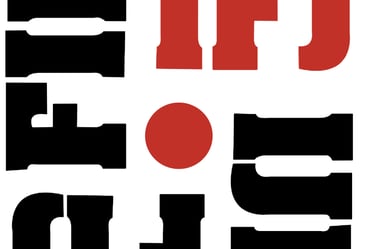The Historic Debut of Sambo at the African Games


As the sun set over the vibrant city of Accra, anticipation filled the air at the GCB Legon Hall. The historic debut of sambo at the African Games had stirred excitement among athletes, spectators, and martial arts enthusiasts alike. The inclusion of sambo in the programme marked a significant milestone for this dynamic and versatile combat sport.
The event attracted sambists from across the African continent, each representing their respective countries with pride and determination. The competition featured three disciplines, each with its own unique set of skills and strategies. In the men's sport sambo category, athletes showcased their technical prowess and agility, executing lightning-fast throws and submissions that left the crowd in awe.
Meanwhile, the women's sport sambo division displayed the power and grace of female sambists. With their unwavering focus and precision, these athletes demonstrated that sambo knows no gender boundaries. Their dynamic movements and strategic maneuvers captivated the audience, challenging the notion that combat sports are solely dominated by men.
However, it was the men's combat sambo discipline that truly stole the show. This intense and adrenaline-fueled category showcased the raw power and combat skills of the sambists. Athletes engaged in fierce battles, combining striking techniques with ground fighting and submission holds. The energy in the arena was palpable as the crowd erupted in applause and cheers for the display of martial prowess.
The inclusion of sambo in the African Games was not only a testament to the sport's growing popularity but also a reflection of its rich history and cultural significance. Originating in the Soviet Union in the 1920s, sambo has since spread its influence worldwide, captivating practitioners and enthusiasts with its unique blend of judo, wrestling, and striking techniques.
As the medals were awarded and the cheers echoed through the hall, it was evident that sambo had found its place among the pantheon of combat sports. The historic debut of sambo at the African Games had not only showcased the skill and dedication of the athletes but also marked a new chapter in the sport's journey towards global recognition and acceptance.
Meanwhile, in the 68 kg weight class, Ahmed El Yazidi put on a masterclass performance, outmaneuvering his opponents with his lightning-fast reflexes and strategic moves. His flawless technique earned him the gold medal and solidified his position as one of the top athletes in the sport.
Moving on to the 90 kg weight class, Moroccan athlete Hassan Ait Ichou demonstrated his sheer strength and power, overpowering his adversaries and securing the gold medal. His explosive takedowns and relentless aggression left his opponents in awe, cementing his status as a force to be reckoned with in the sport of sambo.
Finally, in the heavyweight division, Moroccan athlete Khalid El Bakouri showcased his dominance, overpowering his opponents with his imposing physique and technical prowess. His exceptional grappling skills and relentless determination earned him the gold medal, making him the undisputed champion of the +100 kg weight class.
The Moroccan athletes' outstanding performance in the men's sport sambo category not only showcased their individual talents but also highlighted the country's dedication to the sport. With their impressive medal haul, they have firmly established themselves as a dominant force in the world of sambo, inspiring a new generation of athletes to pursue excellence in this martial art.
Women's sport sambo has been gaining increasing popularity in recent years, with more and more talented athletes like Sanaa Mandar emerging on the scene. Mandar's victory in the -65 kg weight class was not only a testament to her exceptional skills and hard work, but also a reflection of the growing recognition and support for women's sambo.
Sambo, a martial art and combat sport that originated in Russia, has traditionally been dominated by male athletes. However, in recent years, there has been a concerted effort to promote gender equality and provide equal opportunities for women in the sport. This has led to the establishment of dedicated women's divisions and competitions, allowing female athletes like Mandar to showcase their talents on a global stage.
Mandar's journey to the gold medal was not an easy one. She faced tough competition from athletes representing various countries, each vying for the top spot. However, Mandar's exceptional technique, strength, and strategic prowess set her apart from the rest. Her ability to adapt to different opponents and execute precise moves with precision and speed was truly impressive.
Moreover, Mandar's success in the -65 kg weight class is a testament to her unwavering dedication and relentless training. Like many elite athletes, she has spent countless hours honing her skills, pushing her body to the limits, and sacrificing personal comforts in pursuit of excellence. Her victory serves as an inspiration to aspiring female sambo athletes around the world, showing them that hard work and determination can lead to remarkable achievements.
As women's sport sambo continues to grow, it is crucial to provide the necessary support and resources to nurture and develop talented athletes like Sanaa Mandar. This includes increased funding for training programs, access to world-class coaching, and opportunities to compete at the highest level. By investing in the development of women's sambo, we can ensure that future generations of female athletes have the platform they need to excel and make their mark in this dynamic and exciting sport.
Women's Combat Sambo
The success of Moroccan athletes in the men's combat sambo division was matched by their female counterparts in the women's category. Fatima Zahra Abou Fares, competing in the 60 kg weight class, displayed remarkable technique and agility to secure the gold medal. In the 68 kg weight class, Aicha El Ouahabi showcased her strength and strategic prowess, earning her the top spot on the podium.
The achievements of Moroccan women in combat sambo at the African Games are a testament to their dedication and skill. Their performances not only demonstrate their individual talent but also reflect the growing inclusivity and recognition of women in combat sports.
Combat sambo, like its male counterpart, combines elements of judo and wrestling, making it a physically demanding and highly technical martial art. The inclusion of women's combat sambo in the African Games provides a platform for female athletes to showcase their abilities and contribute to the sport's overall growth and development.
As the African Games continue to expand and diversify, the inclusion of women's combat sambo is a significant step towards promoting gender equality in sports. It allows female athletes from different countries to compete at the highest level, fostering a sense of empowerment and camaraderie among participants.
With the success of the inaugural women's combat sambo competition at the African Games, it is expected that the sport will continue to gain momentum and attract more female participants in the future. The support and recognition from sporting bodies and federations will be crucial in providing opportunities for women to excel in combat sambo and other martial arts.
Overall, the inclusion of women's combat sambo in the African Games marks a milestone for gender equality in sports and highlights the talent and potential of female athletes in combat sports. As the sport continues to evolve and gain traction, it will undoubtedly contribute to the overall development and recognition of women's martial arts in the African sports landscape.




